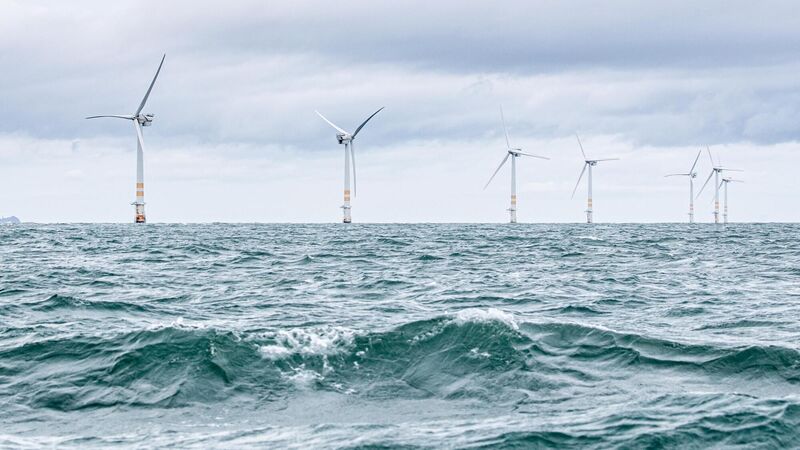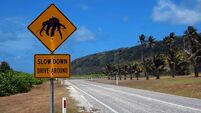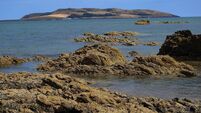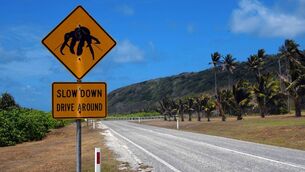Donal Hickey: Is the energy crisis answer blowing in the wind?

Ireland's first and only operational offshore wind farm at the Arklow Bank Wind Park (Phase 1), off the coast of Arklow, Co. Wicklow. Constructed in 2003/04, the seven wind turbines have a capacity of 25.2 MW and they are owned and operated by GE Energy. Picture: Neil Michael
What happens if the wind doesn’t blow and we’re short of electricity as a result? It’s a problem we’ve already seen with land-based turbines in calm weather.
Many experts now agree that the sea — especially the wind-blown Atlantic — holds the best possibilities for producing renewable energy in Ireland into future. And, while we are falling behind other EU countries in offshore electricity production, there are signs the Government is moving in the right direction.








